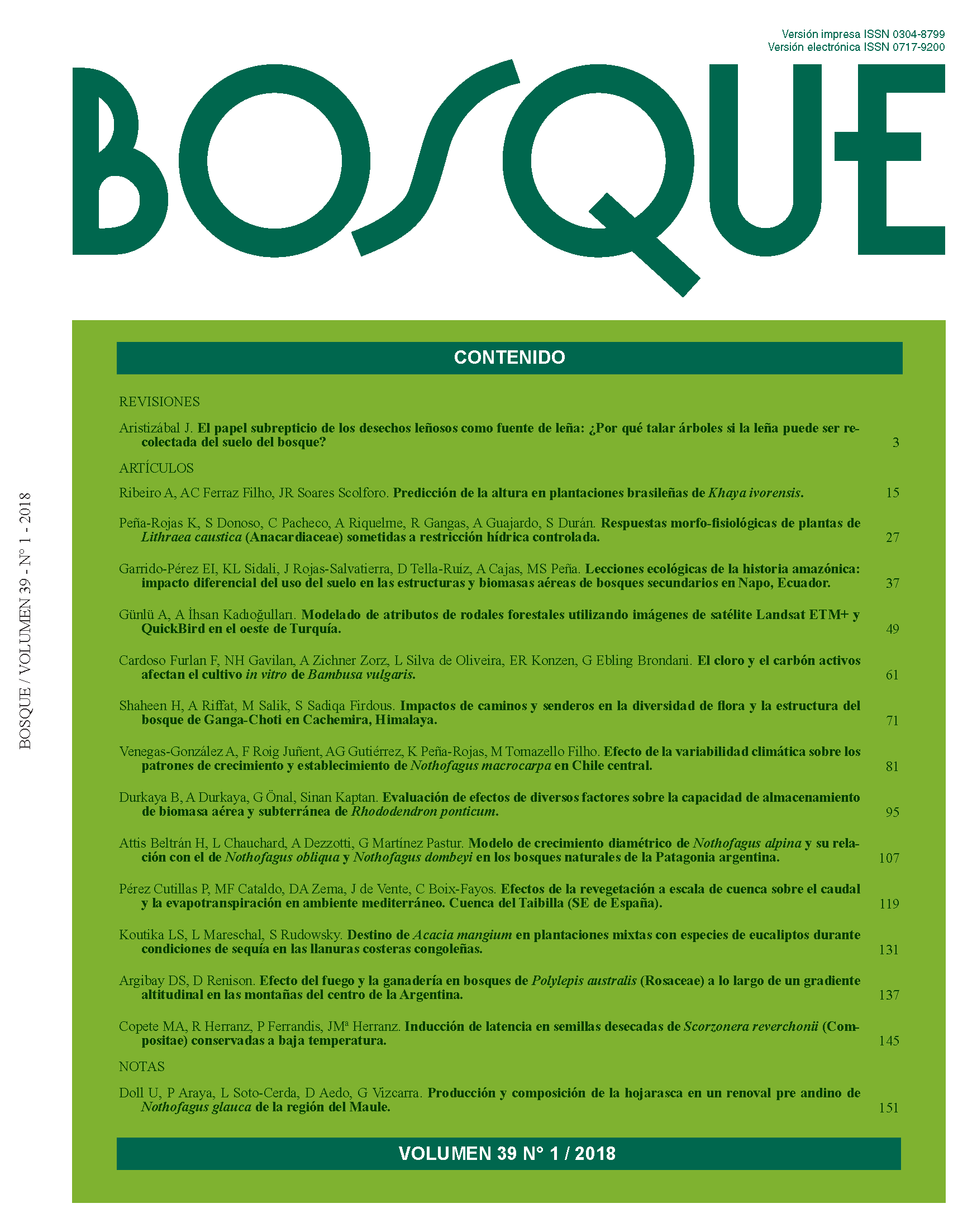Active chlorine and charcoal affect the in vitro culture of Bambusa vulgaris
Main Article Content
Abstract
We evaluated the supplementation of the MS culture medium with active chlorine and activated charcoal for the in vitro culture of Bambusa vulgaris. Lateral shoots were collected from field-cultivated plants to obtain explants, which consisted of nodal segments of 1-2 cm length, containing one axillary bud. The MS culture medium was supplemented with the following treatments: E1= 0.004 % v v-1 of active chlorine + 4 g L-1 of charcoal; E2= 0.004 % v v-1 of active chlorine; E3= 4 g L-1 charcoal and E4= control (no active chlorine and no charcoal). The percentage of oxidation, fungal and bacterial contamination, explant establishment, survival, sprout and adventitious rooting were evaluated every 21 d, during 63 d. The use of active chlorine reduced the fungal (28 %) and bacterial (38 %) contamination, being the treatment with the highest percentage of established explants (16 %), survival (68 %) and sprout induction (95 %) after 63 d. After 36 days from the beginning of the multiplication stage, some explants presented spontaneous rooting, without the application of plant growth regulators. An anatomical analysis of sprouts and roots revealed the presence of meristematic zones. Furthermore, it indicated that the emergence of adventitious roots occurred from the nodal region in association with axillary buds. Our results contribute toward the development of more efficient protocols for the in vitro propagation of B. vulgaris, from which we recommend using active chlorine for further assessments.

